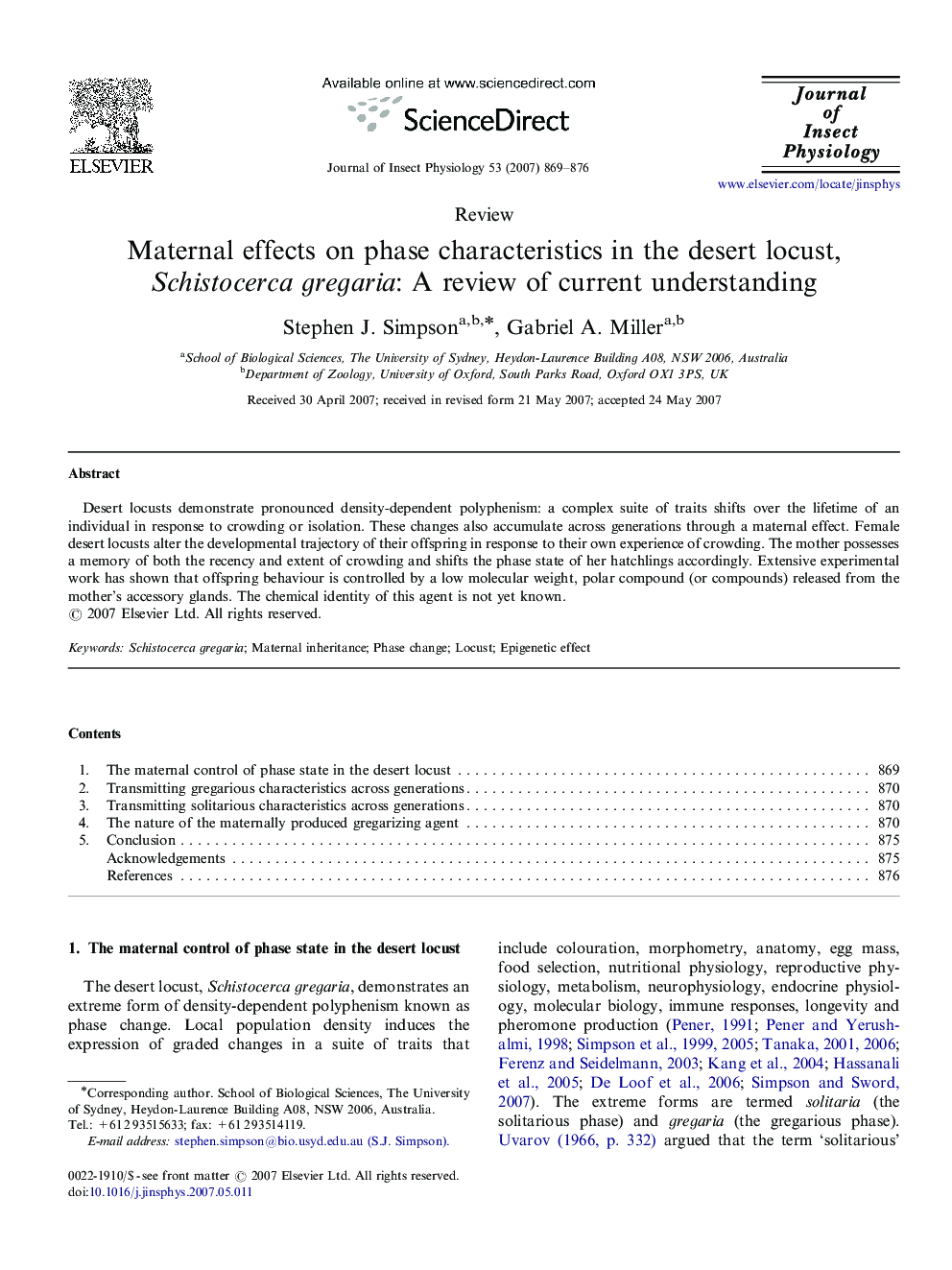| Article ID | Journal | Published Year | Pages | File Type |
|---|---|---|---|---|
| 2841559 | Journal of Insect Physiology | 2007 | 8 Pages |
Abstract
Desert locusts demonstrate pronounced density-dependent polyphenism: a complex suite of traits shifts over the lifetime of an individual in response to crowding or isolation. These changes also accumulate across generations through a maternal effect. Female desert locusts alter the developmental trajectory of their offspring in response to their own experience of crowding. The mother possesses a memory of both the recency and extent of crowding and shifts the phase state of her hatchlings accordingly. Extensive experimental work has shown that offspring behaviour is controlled by a low molecular weight, polar compound (or compounds) released from the mother's accessory glands. The chemical identity of this agent is not yet known.
Related Topics
Life Sciences
Agricultural and Biological Sciences
Insect Science
Authors
Stephen J. Simpson, Gabriel A. Miller,
